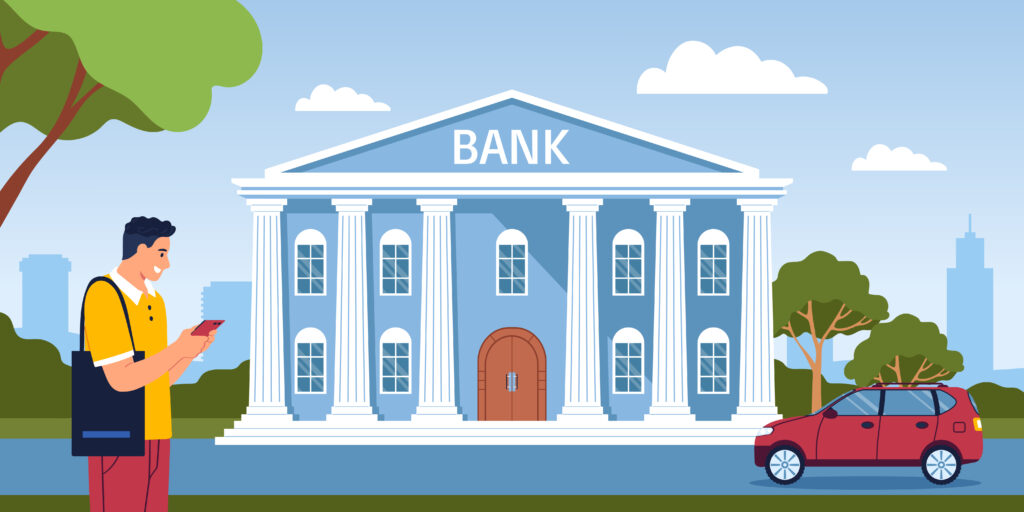

Unfreeze Bank Account
Consult With Lawyer Now
Crime Crime, Digital Device का उपयोग करके किए जाते हैं, जो आमतौर पर Internet के मध्यम से होते हैं। Cyber अपराधियों को Unauthorized रूप से Computer System तक पहुँचने, Personal जानकारी चुराने, Malware फैलाने, धोखाधड़ी करने या अन्य अवैध गतिविधियों में शामिल होने के लिए विभिन्न Technology का use कर सकते हैं। Cyber Crime अपराध के उदाहरणों में Online Jobs Scam, Online Loan Scam, Online Video Blackmailing, Online Cryptocurrency etc… (DDoS) हमले शामिल हैं।
Types of Cyber Crimes

Online Job Fraud
File a Complaint

Online Loan Fraud
File a Complaint

Facebook Hacking
File a Complaint

Instagram Hacking
File a Complaint

Online Bank Fraud
File a Complaint

Credit Card Fraud
File a Complaint

Bank Account Freeze
File a Complaint

Video Call Blackmailing
File a Complaint
How To Unfreeze A Bank Account By Cyber Cell
Freeze Bank Account In India Cyber Cell
Cybercrime has become a common problem in recent times It affects business and individuals. Cybercriminals employ a variety of tactics to swindle victims, like phishing scams, malware attacks as well as social media We will look at few typical kinds of cybercrime: bank fraud as well as video call fraud, job fraud and loans fraud. We will also give guidelines on how to safeguard yourself from being the victim of the various types of cybercrime.
Cyber Crime Complaint
Cybercrime is the term used to describe the criminal activities that happen on the internet, which includes fraud, identity theft and hacking. Cybercriminals employ a variety of methods to defraud their victims, such as video call blackmailling, Online loan fraud, Online bank fraud, Online job fraud, Online social media. Cybercrime could result in the loss of money and identity theft and different types of damage.
Online Facebook And Instagram Fraud
Some frauds clone your Facebook and Instagram I’d, then send friend requests to your family, friends, relatives, then talk to them and ask for money or do many types of fraud, and they also blackmail you by cloning your Facebook and Instagram I’d.
Call Now To File a Complaint
How to Protect Yourself from Facebook and Instagram Fraud
- Securing your online presence.
- Securing your account and password.
- Identifying and reporting scams and impersonation accounts.
Online Bank Fraud
Bank fraud is a form of cybercrime which includes the use of fraudulent methods to extort money from people or companies. Cybercriminals employ a variety of strategies to commit bank fraud, such as malware attacks, phishing scams and social engineering.
Call Now To File a Complaint
1. Techniques Used by Cybercriminals for Bank Fraud
There are many types of bank frauds, which include:
- UPI Fraud: Hackers request users to enter their PIN OTP or download the app through a link which they send via SMS or WhatsApp. Never fall in these traps and never share PIN OTP or confidential password.
- Using Third Parties Mobile App: Cybercriminals employ Third Parties Mobile App to infect victims’ smartphone or computer. The mobile app are could then be used to steal financial and personal details, including passwords for logins and bank account numbers.
- Social engineering: Cybercriminals employ techniques of social engineering like pretexting and baiting, to entice their victims into disclosing personal and financial details.
- Scams to phish: Cybercriminals design fake websites or emails which appear to be from an authentic financial institution. They then use the fake websites or emails to extort personal and financial details from their victims.
2. How to Protect Yourself from Bank Fraud
To protect yourself against bank fraud, you should follow the steps below:
- Be careful of any unknown mobile numbers and users.
- Do not share your UPI PIN for the lure of receiving money through UPI.
- Do not accept any unknown payment request.
- Be attention of emails that appear suspicious: Beware of emails asking you to supply personal or financial information, or click hyperlinks. If you’re not sure if an email is authentic Contact your bank directly to verify.
- Maintain your mobile and computer up to date: You must ensure that your PC and mobile device are updated with the most recent patches for security and software updates that protect against attacks by malware.
- Use passwords that are secure: Use unique, strong passwords for bank accounts and update your passwords regularly. Do not use the same password on several accounts.
- Allow two-factor authenticationTwo-factor authentication is an additional layer of security on your accounts at banks through the use of another element, like the code you receive on your mobile phone as well as your password.
Online Video Call Fraud
A video call nude scam typically involves a criminal posing as a potential romantic partner or a model on a video call platform. They may engage the victim in conversation and slowly build trust before requesting that the victim take their clothes off or engage in sexual acts on camera. The criminal may record the video call without the victim’s knowledge or consent and then use the footage to extort money from the victim or distribute it online.
Call Now To File a Complaint
1. Techniques Used by Cyber Criminals for Video Call Fraud
- Be wary of video calls from strangers: If someone you don’t know contacts you on a video call platform, be cautious about engaging with them.
- Do not reveal personal information: Be wary about sharing any personal details such as your full name, address or phone number with people whom you don’t know well.
- Do not remove your clothing on camera: Never engage in sexual activity while being watched, even if someone presses you into doing it.
- Keep to reputable video call platforms: When selecting video calling platforms such as WhatsApp, Instagram, Facebook, Skype Zoom and Google Meet to use for video chatting be sure to read and agree to their respective privacy policies before beginning use of any new platform.
2. How to Protect Yourself from Video Call Fraud
To protect yourself from video call fraud, you can take the following steps:
- Be wary of unsolicited video calls: If someone you don’t know or trust sends you a video call request, be cautious. Scammers often use fake profiles or stolen identities to lure their victims.
- Don’t Share Personal Details: During a video call with someone unfamiliar, avoid sharing any sensitive personal data such as your full name, address or financial details.
Select video call apps with security features: When choosing video calling applications, make sure they contain security features like end-to-end encryption or two-factor authentication. - Cover Your Camera When Not in Use: Covering your camera when not in use with stickers or pieces of tape can prevent hackers from accessing it and recording you without your knowledge. This also protects against hacker threats who could gain entry to it and use it for illegal recording purposes.
- Report Suspicious Activity: If you suspect anyone of trying to scam you, report this incident immediately to the appropriate authorities or video call app provider so they can investigate and take necessary actions against further fraud attempts.
Online Job Fraud
Job fraud is one of the types of cybercrime which involves the employing fake job ads to obtain personal and financial information from job applicants. Cybercriminals employ various strategies to perpetrate job fraud using phishing, social media.
Call Now To File a Complaint
2. Techniques Used by Cybercriminals for Job Fraud
Cybercriminals employ a variety of techniques to use various methods to carry out fraud in the workplace, including Phishing.
- Cybercriminals employ techniques to entice job seekers into disclosing personal and financial data.
- fake job ads cybercriminals advertise fake job advertisements to steal financial and personal details from job applicants.
3. How to Protect yourself from Job Fraud
To protect yourself from job fraud, you can take the following steps:
- Do your research on the company: Read about the company as well as the job advertisement before submitting your application.. Look for reviews and information about the company on their website and social media channels.
- Don’t provide personal or financial information upfront: Do not provide personal or financial information, such as your Social Security number or bank account information, until you have verified the legitimacy of the job posting and the company.
- Avoid Unsolicited Job Offers: Be wary of job offers you did not apply for, particularly those asking for personal or financial information.
Online Loan Fraud
Loan fraud is a type of cybercrime in which fraudulent loan applications are used to gather personal and financial data from individuals or businesses. Cybercriminals employ various strategies for perpetrating loan fraud such as phishing attacks or social media scams.
Call Now To File a Complaint
1. Techniques Used by Cybercriminals for Loan Fraud
Cybercriminals employ various methods to perpetrate loan fraud, which includes:
- Loan application fraud: Cybercriminals use fake loan applications to steal personal and financial information from individuals or businesses.
- Advance fee fraud: Cybercriminals request an upfront fee for a loan that never materializes.
3. How to Protect Yourself from Loan Fraud
- Be cautious of unsolicited loan offers: Be wary of unsolicited loan offers that you did not apply for, especially if they are asking for personal or financial information.
- Research the lender: Research the lender and the loan terms before applying. Look for reviews and information about the lender on their website and social media channels.
- Don’t provide personal or financial information upfront: Do not provide personal or financial information, such as your Social Security number or bank account information, until you have verified the legitimacy of the lender and the loan terms.
Unfreeze Bank Account By Cyber Cell In India
Freeze Bank Account
Best Cyber Crime Lawyer In India
REQUEST A CALL BACK
TALK TO OUR EXPERT
Popular Services
Online Job Fraud
Online Loan Fraud
Unfreeze Bank Account Online
Video Call Blackmailing
Facebook Hacking
Instagram Hacking
Benefits
Maintaining Confidentiality
We maintain an end to end privacy concerning any of our clients and provide undisclosed service.
Less Running
This entire process is very fuzz-free one can gain advice over a short period without worrying about it much.
Appropriate Advice
Our team of counsel has sound knowledge and would guide you according to your requirement.
No Hidden Charges
There are no hidden charges levied.
Online/Phone Legal Advice V/S In-Person Consultation
Saves your transportation cost, saves time, provide urgent solutions also convenient for busy clients, privacy maintained while discussing over phone and emails.
Completely Online
Our team of advisors will provide you with sound advice based on your needs. The entire procedure is very smooth and worry free.
Cyber Crime Complaint For Cyber Fraud In India
Consult With Lawyers
100% Satisfaction Guaranteed
REQUEST A CALL BACK
TALK TO OUR EXPERT
How We Work
Get The Best Legal Help From Online Legal Center In 5 Easy Steps:
1
Fill the form/ WhatsApp your queries/Call an expert
2
Pay the fee
3
Get a call from the lawyer
4
Discuss your case and review your case documents
5
Get the best advice/solution for your legal issues
Consult With Lawyers For Cyber Crime Complaint
Get Best Cyber Crime Lawyer In India
REQUEST A CALL BACK
TALK TO OUR EXPERT
